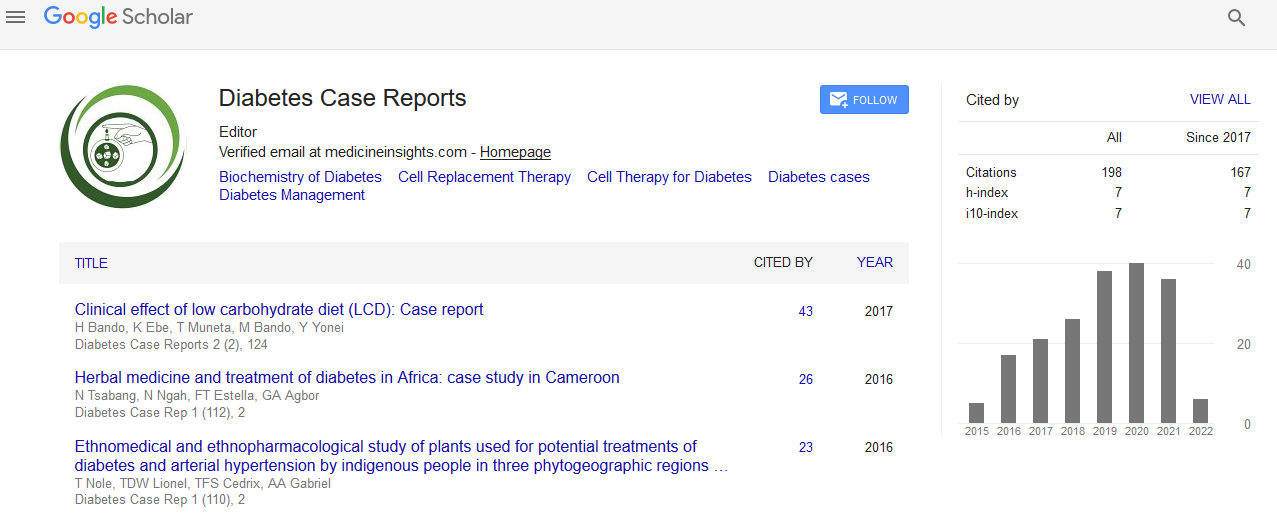Indexed In
- RefSeek
- Hamdard University
- EBSCO A-Z
- Euro Pub
- Google Scholar
Useful Links
Share This Page
Journal Flyer

Open Access Journals
- Agri and Aquaculture
- Biochemistry
- Bioinformatics & Systems Biology
- Business & Management
- Chemistry
- Clinical Sciences
- Engineering
- Food & Nutrition
- General Science
- Genetics & Molecular Biology
- Immunology & Microbiology
- Medical Sciences
- Neuroscience & Psychology
- Nursing & Health Care
- Pharmaceutical Sciences
Abstract
Atherogenic Index and Female Gender are Independent Determents of Chronic Subclinical Inflammation in Subjects with Type 2 Diabetes Mellitus
Muhammad Saiedullah, Md Mahfuzur Rahman and Mohammad Abdul Hai Siddique
Background: Chronic subclinical inflammatory poses additional risk of cardiovascular diseases in subjects with type 2 diabetes mellitus (T2DM) but its determinants in Bangladeshi population are not fully resolved. The aim of this study was to explore the relationship between marker of chronic subclinical inflammation and gender and atherogenic index (AI) in subjects with T2DM. Methods: Two hundred and fifty-four subjects with T2DM were included. Demographic and anthropometric variables were estimated. Plasma glucose, serum lipid profile and high sensitivity-C reactive protein (hsCRP) were measured in fasting blood samples using standard methods. AI was calculated as log (concentration of triacylglycerol/high density lipoprotein cholesterol). Results: The median and interquartile range of age was 51 (43-60) years. Of the total subjects, 47% was female and had higher hsCRP [3.1 (1.7-5.6) vs 1.6 (0.84-3.6) mg/L, p<0.0001] but lower AI [0.57 (0.39-0.77) vs 0.68 (0.51- 0.84), p=0.0015] compared to male. Spearman rank correlation coefficient of hsCRP was significant for BMI (ρ=0.204, p=0.0011) and AI (ρ=0.147, p=0.0195). Logistic regression analysis showed significant positive association of AI (β=1.645, p=0.0078) and female gender (β=1.094, p=0.0002) with subclinical inflammation which remained significant (for AI, β=1.548, p=0.0152; for female gender, β=1.086, p=0.0003) on adjusting other confounders (hypertension, lipid lowering drugs). Conclusions: Atherogenic index and female gender were found to be independent determinants of chronic subclinical inflammation.

